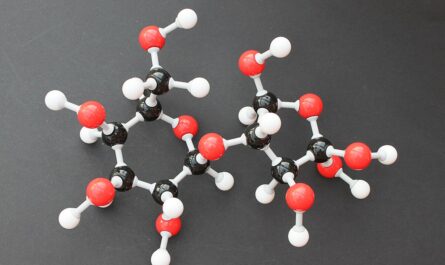Bone and Joint Health: Essential Nutrients for Strong Bones and Flexible Joints
Good bone and joint health is crucial for mobility and quality of life as we age. Our skeleton provides structure and support to our body, while our joints allow us to move freely. Maintaining strong bones and flexible joints requires getting the right nutrients from our diet. In this article, we will explore some of the most important bone and joint health ingredients to focus on for support.
Calcium
Calcium is the major building block of bones and teeth. It is essential for bone mineralization and maintaining bone mass. Our bones are constantly breaking down and rebuilding themselves, and we need adequate calcium intake to promote bone formation over resorption. Dairy products like milk, yogurt and cheese are rich sources of highly bioavailable calcium. Other good sources include sardines or salmon eaten with edible bones, tofu, leafy greens like kale and broccoli. The recommended daily calcium intake is 1000-1200 mg per day. For those over 50, the requirement increases to 1200 mg.
Vitamin D
Our bodies need vitamin D to absorb and utilize calcium. Vitamin D helps regulate the amount of calcium and phosphate in the blood which gets deposited into bones and teeth. It is produced in our skin upon sun exposure, but many people are deficient especially in winter months. Good dietary sources of vitamin D include fatty fish like salmon, tuna, and mackerel. Fortified foods like milk, yogurt, orange juice and cereals also contain vitamin D. The recommended daily intake is 600-800 IU per day and increases to 800 IU for those over 70 years of age. Vitamin D deficiency can lead to bone loss and increase risk of fractures.
Magnesium
This mineral is essential for bone mineralization and the formation of collagen, an important component of bones and connective tissues. Population studies show that higher magnesium intake through food or supplements is associated with higher bone mineral density and reduced risk of hip fractures. Good food sources of magnesium include leafy greens, nuts, seeds, beans, and whole grains. The recommended daily amount is 310-320 mg per day for adult women and 400-420 mg for adult men.
Protein
Protein is a major building block of muscles, tendons, ligaments and connective tissues. Adequate protein intake promotes the maintenance and repair of bones, cartilage and joints. Good quality plant and animal sources of protein include fish, poultry, beans, lentils, nuts and seeds. The daily requirement is 46 grams for adult women and 56 grams for adult men. Sufficient protein consumption has been linked to increased bone mineral density and reduced risk of fractures.
Omega-3 Fatty Acids
Omega-3 fats EPA and DHA found in fish oils and plant sources like walnuts and flaxseeds play a role in joint and bone health. They have anti-inflammatory properties which can help reduce joint pain and swelling associated with conditions like osteoarthritis. Research suggests omega-3s may help minimize bone loss and lower fracture risk after menopause. Aim for 1000-3000 mg total omega-3 intake daily from food and supplements.
Other Key Nutrients
In addition to the major players, several other vitamins and minerals play supporting roles and should be obtained through a balanced diet:
– Vitamin K: Needed for bone mineralization. Leafy greens like kale and spinach are excellent sources.
– Vitamin C: Helps build collagen. Citrus fruits, bell peppers and broccoli contain high amounts.
– Vitamin B12: Required for bone cell formation. Found in meat, fish, eggs and dairy.
– Manganese: Helps form bone and cartilage. Pumpkin seeds, cranberries, brown rice and leafy greens contain manganese.
– Boron: May enhance calcium and magnesium absorption and play a role in mineral metabolism. Found in grapes, plums, dates and avocados.
– Fluoride: Strengthens bone mineral structure. Sources include fluoridated water and seafood.
– Silica: May increase collagen elasticity and integrity. Found in cucumbers, green beans, bell peppers.
The Bottom Line
To support Bone And Joint Health as we age, focus on getting enough calcium, vitamin D, magnesium and protein from a variety of nutrient-dense whole foods. Consider taking an omega-3 or other supplement as needed to fill in any dietary gaps. Maintaining a balanced lifestyle with regular exercise, stress management and adequate hydration also plays an important role in keeping bones and joints strong and flexible long-term. Following these strategies can help maximize mobility and quality of life.
Note:
1. Source: Coherent Market Insights, Public sources, Desk research
2. We have leveraged AI tools to mine information and compile it




